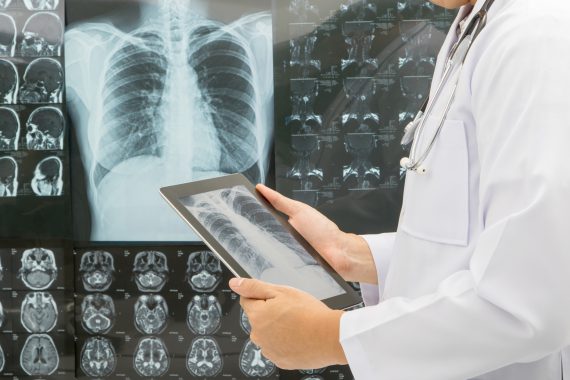Vulnerable patients still without shielding advice, warns national cancer lead

There are extremely vulnerable patients with cancer who have yet to receive a letter advising them to shield from coronavirus, according an NHS clinical director.
An NHS letter, sent last week to cancer alliance leadership teams, urged them to remind GPs and hospital trusts to continue to identify vulnerable patients.
It further said that GPs and hospital trusts would continue to be able to add and remove patients from the list ‘throughout the Covid-19 incident’.
The letter, from NHS national clinical director for cancer Professor Peter Johnson said: ‘We are still receiving reports of cancer patients who believe that they should have received a shielding letter but have not yet received one or have not been added to the national list.
‘It is crucial that those who are clinically extremely vulnerable receive a letter advising them to shield.’
Professor Johnson said the letter ‘provides evidence to employers’ as well as enables access to special Government support that is being made available to the shielding cohort.
The letter added: ‘We are therefore asking that you remind GPs and hospital trusts in your alliance areas to continue to identify patients who they consider, in their professional judgement, to be at high clinical risk and should therefore be shielded.’
The shielding list continues to be populated via a weekly GPES extraction, as new patients are diagnosed with conditions that make them vulnerable. In addition, the Department of Health and Social Care has said the list of conditions will continue to be updated as new evidence on Covid-19 becomes available.
GPs and hospital specialists can also add patients to the list based on their discretion, with GPs asked to follow up and check in with all patients who are added to the list.
Last week, NHS Digital told Pulse the shielding list stood at 2.16 million patients but the Government today said that around 2.5 million patients have now been identified.
This is a significantly higher number than NHS England’s anticipated 1.5 million patient figure, despite GPs removing 107,000 patients who were added in error.
People on the list have been asked to shield for an initial period up until 30 June, but today the Government’s 50-page explainer to easing the lockdown said is likely going to be extended.
The document said: ‘The guidance on shielding and vulnerability will be kept under review as the UK moves through the phases of the Government’s strategy. It is likely that the Government will continue to advise people who are clinically extremely vulnerable to shield beyond June.’
But the Government added that ‘whilst shielding is important to protect individuals from the risk of Covid-19 infection, the Government recognises that it is challenging for people’s wider wellbeing’, suggesting that it needed to be ‘smarter’ about the advice.
‘The Government will review carefully the effect on shielded individuals, the services they have had, and what next steps are appropriate. For those who need to shield for a longer period, the Government will review the scale and scope of their needs and how the support programme can best meet these,’ it said.
Extremely vulnerable people who should shield from Covid-19
Solid organ transplant recipients.
People with specific cancers:
- people with cancer who are undergoing active chemotherapy
- people with lung cancer who are undergoing radical radiotherapy
- people with cancers of the blood or bone marrow such as leukaemia, lymphoma or myeloma who are at any stage of treatment
- people having immunotherapy or other continuing antibody treatments for cancer
- people having other targeted cancer treatments which can affect the immune system, such as protein kinase inhibitors or PARP inhibitors
- people who have had bone marrow or stem cell transplants in the last 6 months, or who are still taking immunosuppression drugs
People with severe respiratory conditions including all cystic fibrosis, severe asthma and severe chronic obstructive pulmonary (COPD).
People with rare diseases and inborn errors of metabolism that significantly increase the risk of infections (such as Severe combined immunodeficiency (SCID), homozygous sickle cell).
People on immunosuppression therapies sufficient to significantly increase risk of infection.
Women who are pregnant with significant heart disease, congenital or acquired.
Source: NHS Digital
Pulse July survey
Take our July 2025 survey to potentially win £1.000 worth of tokens

Visit Pulse Reference for details on 140 symptoms, including easily searchable symptoms and categories, offering you a free platform to check symptoms and receive potential diagnoses during consultations.










